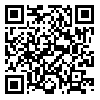Volume 14, Issue 6 (2023)
LRR 2023, 14(6): 405-420 |
Back to browse issues page
Department of English Language Teaching, Aliabad Katoul Branch, Islamic Azad University, Aliabad Katoul, Iran , omazandarani@gmail.com
Abstract: (1246 Views)
There has been mounting pressure on L2 academic staff to take on the role of researchers, thereby contributing to the knowledge economy in higher education. To this end, they have been required to acquire different types of literacies including digital, assessment, and feedback literacies, to name but a few. More recently, statistical literacy has been proposed as an important asset to researchers. Yet, what remains rather unnoticed and unclear is the nature and status of statistical literacy as an important dimension of literacy in teacher education, development, and appraisal research, inasmuch as the existing body of knowledge on statistical literacy is more focused on students rather than teachers. Informed by the relevant literature, this paper brings to attention academic staff’s lack of statistical literacy, as one of the possible driving forces behind their disinclination to do research and calls for further attention to L2 ـ specific statistical literacy as an appraisal tool in faculty evaluation schemes in higher education sector. The implications are discussed in the light of the literature.
In the context of the competitive milieu, universities have been obsessed with acquiring more international reputation and prestige, as a consequence of which world rankings have become a major concern in higher education contexts around the world. In view of the very nature of university rankings which is more directed towards research, the burning question herein is whether university teachers are prepared and inclined to play an active role in the researcher to fulfil their knowledge production mission. In addition, as suggested by the literature, much of what is known about statistical literacy and statistics anxiety comes from research on students with little room for teachers. Although there are different reasons as to why teachers tend to shy away from involvement in research, it is widely accepted in academia that statistics is an important ingredient of research, in particular quantitative research, and it could, therefore, be possibly a source of inhibition for teacher ـ researchers. With this end in view, this paper is an attempt to situate statistical literacy in a broader domain of language teachers’ multiple literacies.
- Introduction
In the context of the competitive milieu, universities have been obsessed with acquiring more international reputation and prestige, as a consequence of which world rankings have become a major concern in higher education contexts around the world. In view of the very nature of university rankings which is more directed towards research, the burning question herein is whether university teachers are prepared and inclined to play an active role in the researcher to fulfil their knowledge production mission. In addition, as suggested by the literature, much of what is known about statistical literacy and statistics anxiety comes from research on students with little room for teachers. Although there are different reasons as to why teachers tend to shy away from involvement in research, it is widely accepted in academia that statistics is an important ingredient of research, in particular quantitative research, and it could, therefore, be possibly a source of inhibition for teacher ـ researchers. With this end in view, this paper is an attempt to situate statistical literacy in a broader domain of language teachers’ multiple literacies.
- The enigmatic nature of statistical language
- Teacher statistical literacy
Concluding Remarks
Informed by a constructivist dimension of learning, university teachers should be, therefore, encouraged to not only believe in, but also exercise agency, that is playing an active role in their knowledge production mission, for which they need to be both competent producers and consumers of (statistical) knowledge. They should be convinced of the indispensableness of statistical knowledge as a professional and pedagogical asset. In conclusion, this paper calls for statistical literacy appraisal as a needs analysis and professional development tool to evaluate L2 university teachers’ both knowledge of and attitude towards statistical reasoning. Minimising statistics anxiety and academic procrastination, statistical literacy would then make lecturer ـ researcher transition smooth
| Rights and permissions | |
 |
This work is licensed under a Creative Commons Attribution-NonCommercial 4.0 International License. |



